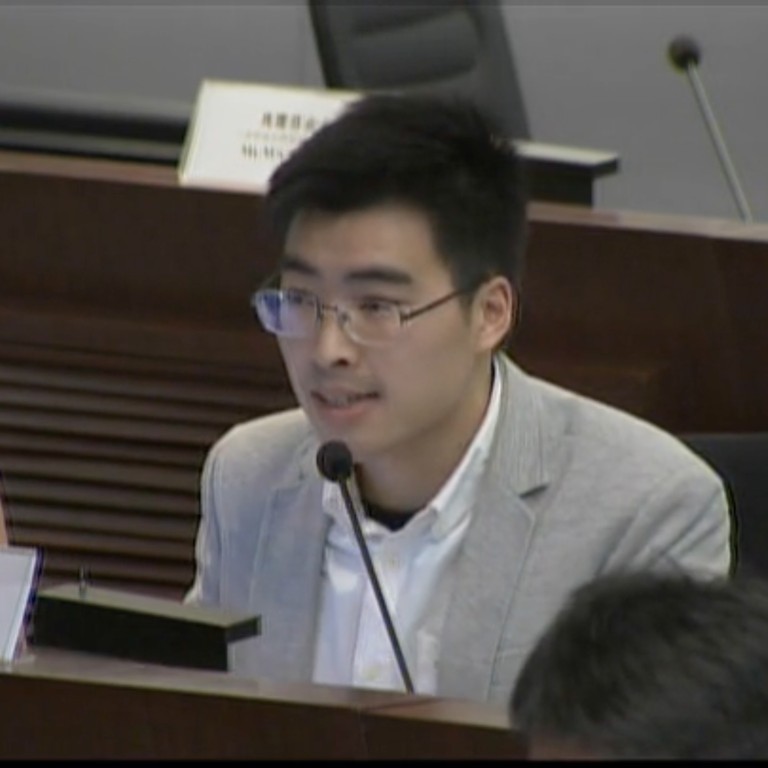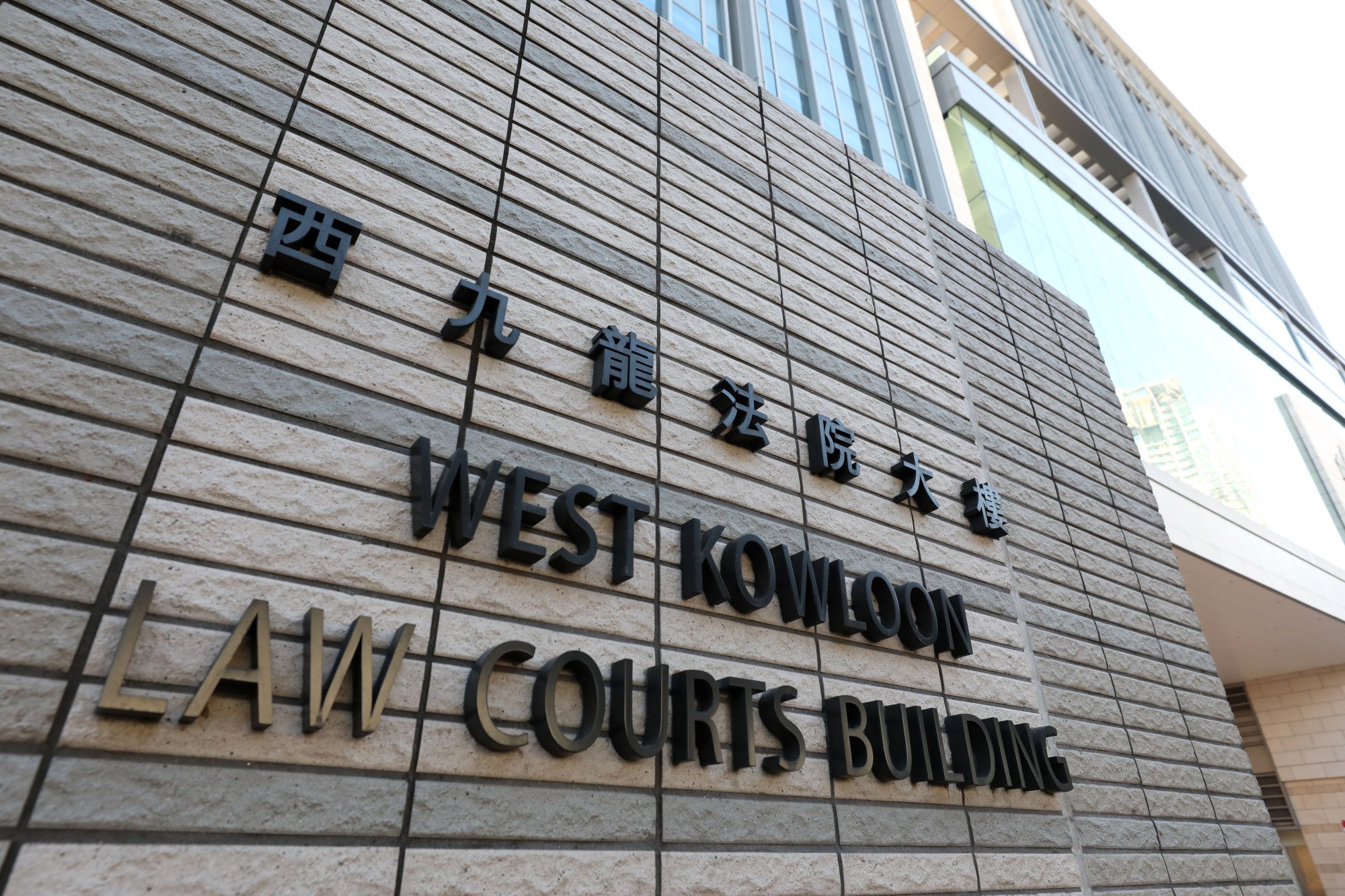
Hong Kong paralegal prosecution witness tells Jimmy Lai trial he lied in police interview to keep himself and friend in the clear
- Wayland Chan tells court he lied about links to ‘Fight for Freedom. Stand with Hong Kong’ group to protect himself and friend Andy Li
- Chan, a prosecution witness, also admits he lied about not being a SWHK member and that he had not taken part in any of its activities
Wayland Chan Tsz-wah, a paralegal, revealed more lies he had told to officers four years ago at the start of an investigation into the “Fight for Freedom. Stand with Hong Kong.” (SWHK) campaign group.
The organisation had called for international sanctions and other hostile acts against Hong Kong and mainland China.
West Kowloon Court heard Chan, who is appearing as a prosecution witness, claimed in an interview with police in October 2020 he was “not very close” to SWHK and that he “always had doubts about some of the purposes of [SWHK] or even its background”.
“So I may have made some disparaging or negative comments about them in private, with friends or with family,” Chan told officers.

The paralegal also said during the police interview that SWHK was an enormous but loose alliance and that it was difficult to know whether programmer-turned-activist Andy Li Yu-hin, a core SWHK member, was at the helm of the group.
Chan told the court he did have concerns about the group’s objectives at first, but admitted most of his remarks were intended to divert police attention away from himself and his friend Li.
“I really did want police to feel that Andy Li was not related,” the accomplice witness said and added he had “wanted to sever ties with SWHK”.
Chan agreed with a suggestion by Marc Corlett, Lai’s defence counsel, that he had lied to police to put himself in the clear.
Prosecutors have accused Lai of orchestrating an anti-Chinese campaign by financing SWHK.
It is alleged the businessman used Chan as a middleman to relay instructions to Li and other activists in the organisation.
Key prosecution witness in Jimmy Lai case admits to lying to Hong Kong police
He also admitted other falsehoods in the 2020 statement to police, including a claim that he was not an SWHK member and had not taken part in any of its activities.
Lai’s legal team also took aim at potentially incriminating claims Chan maintained the mogul had made in a series of encounters in 2019 and 2020.
The defence counsel said Lai also denied that he had said he was in daily communication with Simon, who formerly worked for US naval intelligence, and received regular reports from him on a variety of matters.
Hong Kong’s Jimmy Lai thought arrest would boost global attention, court hears
But Chan highlighted that Lai had never said all protests should be rational and non-violent.
He also maintained Lai did not discuss SWHK’s work, or plans to sponsor UK-based campaigner Finn Lau Cho-dik and make him a political celebrity, with Chan.
Chan denied the defence contentions.
The trial continues on Monday.
